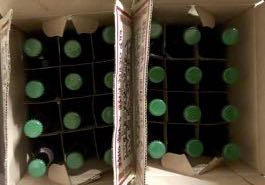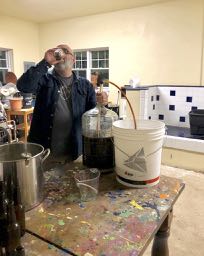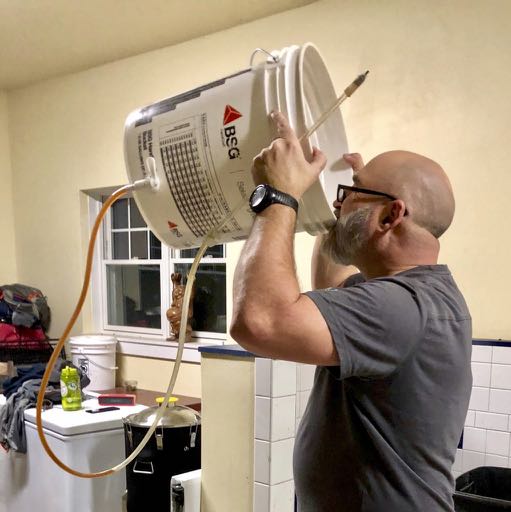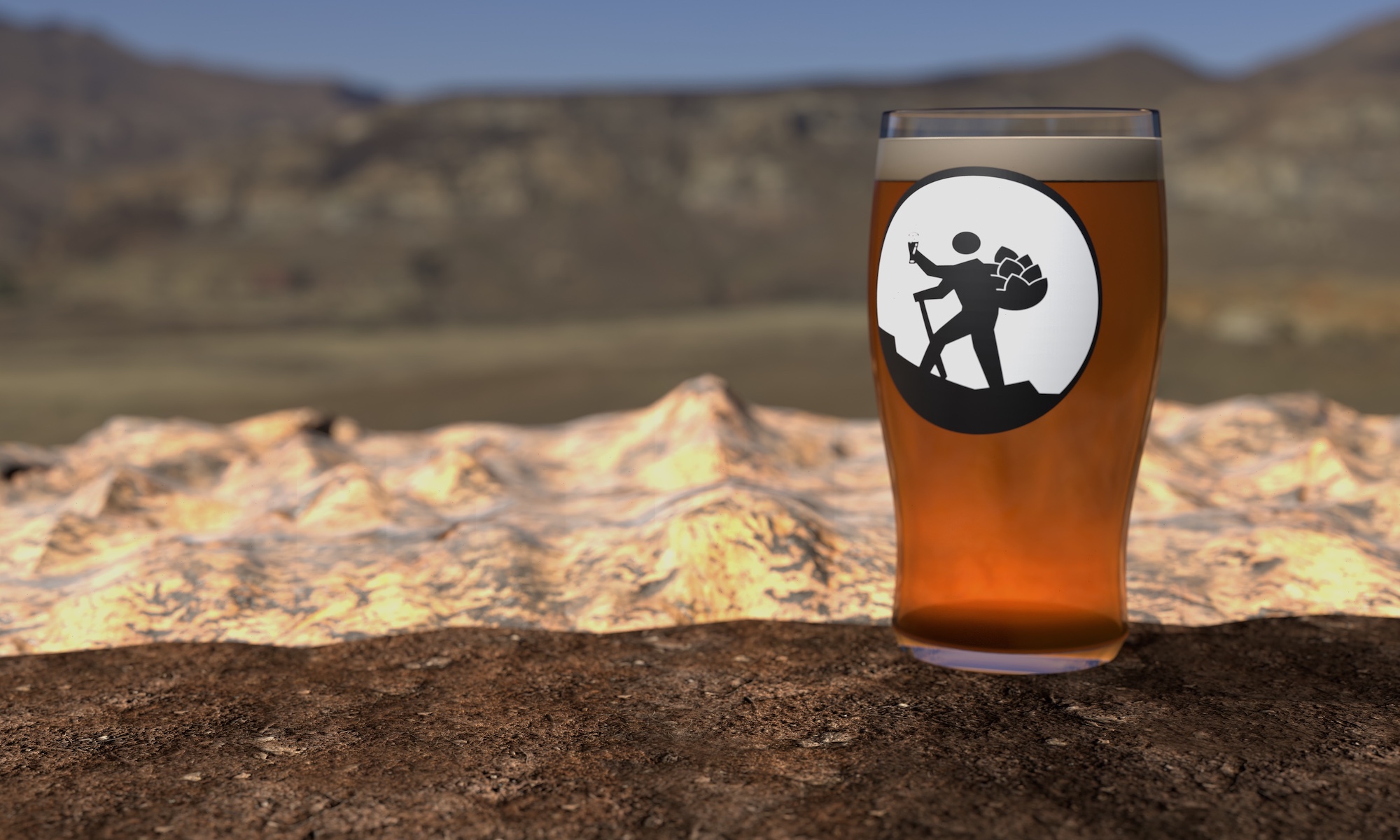
… it’s a week later, and it is time to put this teetering idea of a concoction into glass bottles. The process seems simple enough, you take your fermented brew and mix it with a sugar solution (priming sugar), and then put it into bottles and cap it. Easy, right? Well…. The whole beer can get TRASHED if you touch it or, anything you’re using comes into contact with it that isn’t SANITZED! No pressure, do it right or you flush about 6 hours of brewing down the toilet!
Good news! This is a happy story, not a story that ends with me destroying my friends’ garage and leaving thousands of pieces of glass carboy all over the concrete floor. As with many things in life, it took longer than it should have. We got a late start and fumbled for too long with what kind and how much sugar to use. Then, came my frustration about home much water to add for the solution, and the lack of internet access to find out. I figured it out and began boiling water while Brutus started sanitizing all the equipment for transferring into the bottling bucket and for bottling. With the priming solution finished, I set it aside to cool down, and we had a beer (Upslope – Chocolate Orange Stout / tap room series) and waited. After about 40 mins, the solution still wasn’t cool enough (if it’s too hot it will kill the yeast and stop fermenting, … and ruin your beer), so we put it in the fridge had another beer (Odell’s – Jolly Russian / 2018 cellar series). Finally, the priming solution was ready, and we put it into the bottling bucket, then also transferred the fermented liquid into the bucket.

Once this was finished, it was time to start sanitizing our bottles and crowns (caps) and begin bottling. This is the part that can get tricky, you need to keep everything sanitized while you’re bottling, so that it gets sealed clean. I’m really obsessed with keeping my hands clean while I’m doing it, if I touch the table, drink a beer, pat a dog or llama, I re-sanitize immediately. A lot of people don’t realize how hard bottling is, it takes serious work and you can run into dehydration issues. So, we poured another beer (Junkyard – DDH Belma (Double Dry hopped with Belma hops), then we ran into a different issue. At this point we had a little over a case of beer (24bottles), and we started running out of clean bottles. Usually in this kind of situation, I tend to get worried and go into overdrive trying to fix the problem, but this time I had calmed the anxiousness with the preceding beverages.
Brutus started furiously cleaning out the extra case of bottles, putting each clean one into the sanitizer bucket, while I added more crowns to the sanitizer and then continued to bottle. We finished off the last of the bottles and most of the beer and began the process of capping the bottles and cleaning up all the containers and buckets. Brutus sampled the last little bit of the leftover beer as we cleaned up, and I had a beer (Oskar Blues – Ten Fidy).

This beer came out kind of interesting. It was lighter in color (like a YooHoo chocolate drink) than I had planned, probably needed more boil time or hotter/longer mashing. The flavor was good, but a little thinner than a traditional porter. It has a little bit of a hoppiness to it, but not to overwhelming. At first, I was disappointed and thought it a failure because it didn’t represent the original (Edmund Fitzgerald Porter) very well, but over time it has grown on me. I’ve had a lot of people who don’t like “dark beers” respond very positively to it.
Next up – and IPA
